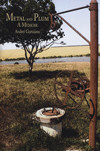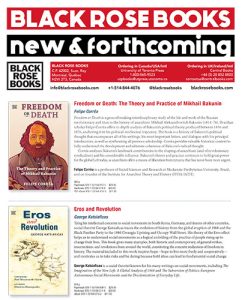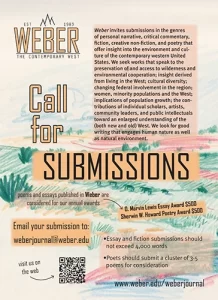Metal and Plum: A Memoir
Soccer balls, crusty heels of bread, Grandmother’s hands, fishing poles. Andrei Guruianu’s Metal and Plum: A Memoir is strewn with such images, such scraps—scraps of metal, scraps of food, red brick, fence posts, gypsy tunes, and scraps of words, language, and memory.
Soccer balls, crusty heels of bread, Grandmother’s hands, fishing poles. Andrei Guruianu’s Metal and Plum: A Memoir is strewn with such images, such scraps—scraps of metal, scraps of food, red brick, fence posts, gypsy tunes, and scraps of words, language, and memory.
In the introduction to the memoir, the author is fishing, ostensibly for carp, but also for a sense of self, of belonging, of home:
If you could taste the word home, it would probably taste like baked peaches soaking in warm cinnamon syrup. It would taste wet, a fresh rainstorm straddling the mountains, piercing dirt that was more than dust and broken ground. It would ring like a gypsy tune that makes muddy sounds, thick with longing and lost love, happiness bordering on the insane.
Guruianu’s family emigrated to the U.S. from Bucharest, Romania. The author was ten years old, an age at which you’re too old to forget you come from another world, and too young to firmly root your remembrances there. He writes:
What does a ten-year-old boy know of the loaded meaning of home, of what his parents meant when they used one word to cover it all, dor—love, passion, desire and sadness, a painful longing for a place so familiar it feels like another limb? The word has no single translation in English, no easy way to go home.
And for me it was never more than a distant dream as I grew up in Queens, playing the good immigrant son. It was only a word, a vague idea like a shadow in the dark.
Founder of The Broome Review, and the first Poet Laureate of Broome County, NY, Guruianu has written three poetry collections. He is foremost a poet, a savorer of words—words such as home and dor, or metal and plum, two disparate words that somehow coexist in one glass of home-stilled Romanian moonshine. In Metal and Plum, words often focus on the concept of the outsider, on a sense of straddling two unlike worlds, always the visitor. Composed as a series of vignettes, the book breaks into four parts, with the first describing life immediately before and during the Romanian Revolution of 1989, in which the communist regime and its dictator Nicolae Ceausescu were overthrown. Part II brings the Guruianus to Jamaica, Queens, New York, where the family must adapt to life in the U.S., while Part III takes the author back to Romania for the first time since the move. The author uses this present-day trip to reacquaint himself with family. It also offers the opportunity to revisit his childhood—at the spring market near his grandparent’s farm, summers fishing his favorite lake, Grandfather’s stories, and the old man’s distilled tuica, tasting “somewhere between moonshine, rubbing alcohol, and plum-flavored vodka”:
I wanted to drink to remember something of which I had no real memory, only one that I built from scraps. That night I wanted to drink the coarsely filtered alcohol like grownups used to during bitter cold Eastern European winters when heaters trembled and coughed out of tune. Back then they drank to burn away the chill that silenced their throats, to put misery to sleep, and shed the workday from their bones. They drank to trick laughter into existence. Back then I simply slept, cold.
In what I imagine was a printing error, Part IV is actually listed as Part V—the vignettes in that section written upon the author’s return to America. They serve as tributes to family members who have passed and those growing old. He writes, for example, of how he can trace the changes in his grandfather’s notebook-paper missives: “There are misspelled words, letters, or entire words missing, and even Grandfather’s signature is sometimes slightly off.” Perhaps the mislaid Roman numeral is yet another elegy. Perhaps Part IV remains, hovering, somewhere over the Atlantic, somewhere between Bucharest and New York’s Susquehanna River. Perhaps Part IV is simply missing, keeping good company with some of his grandfather’s words. In any case, Metal and Plum reads like more than the sum of its parts.





